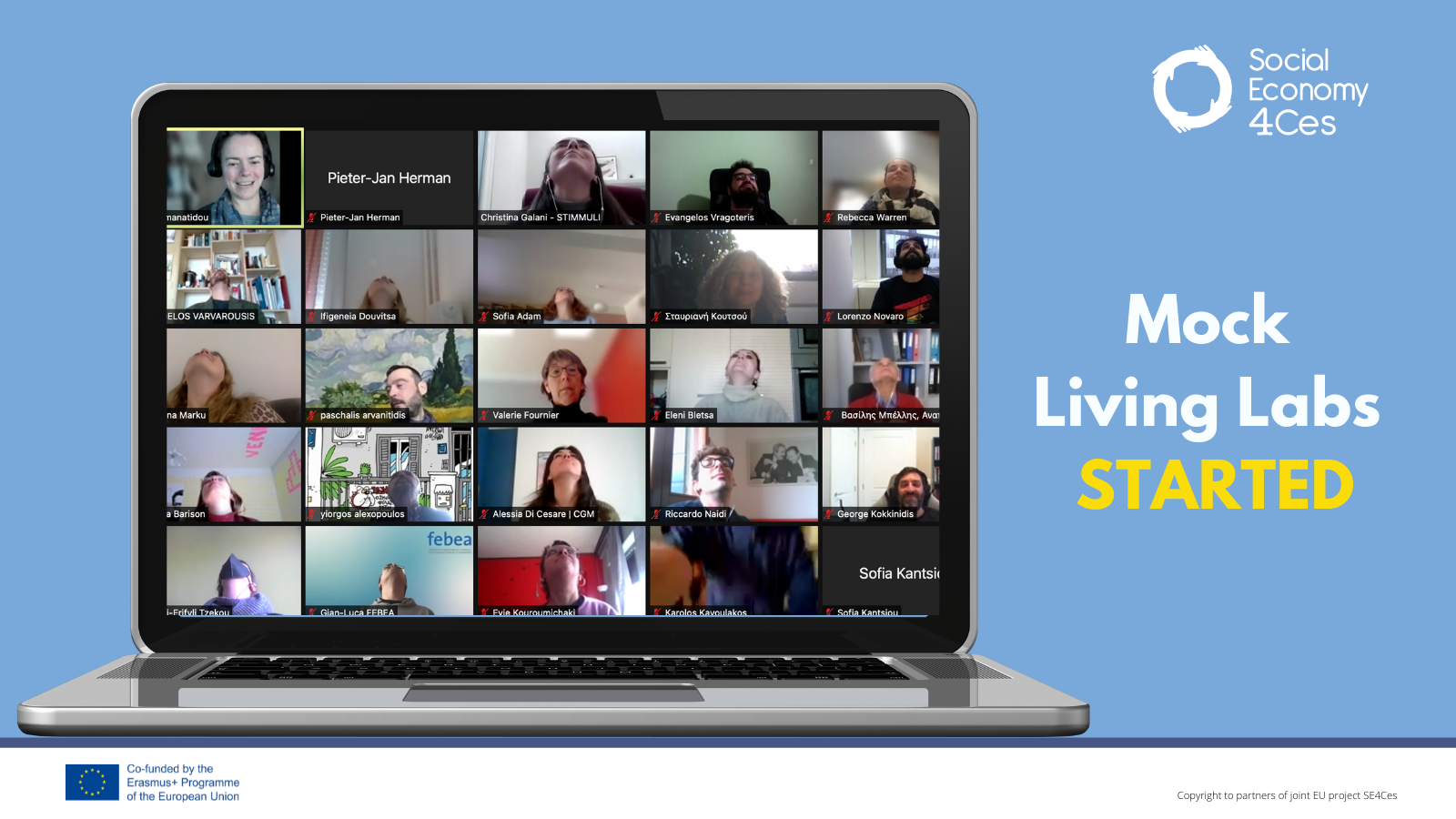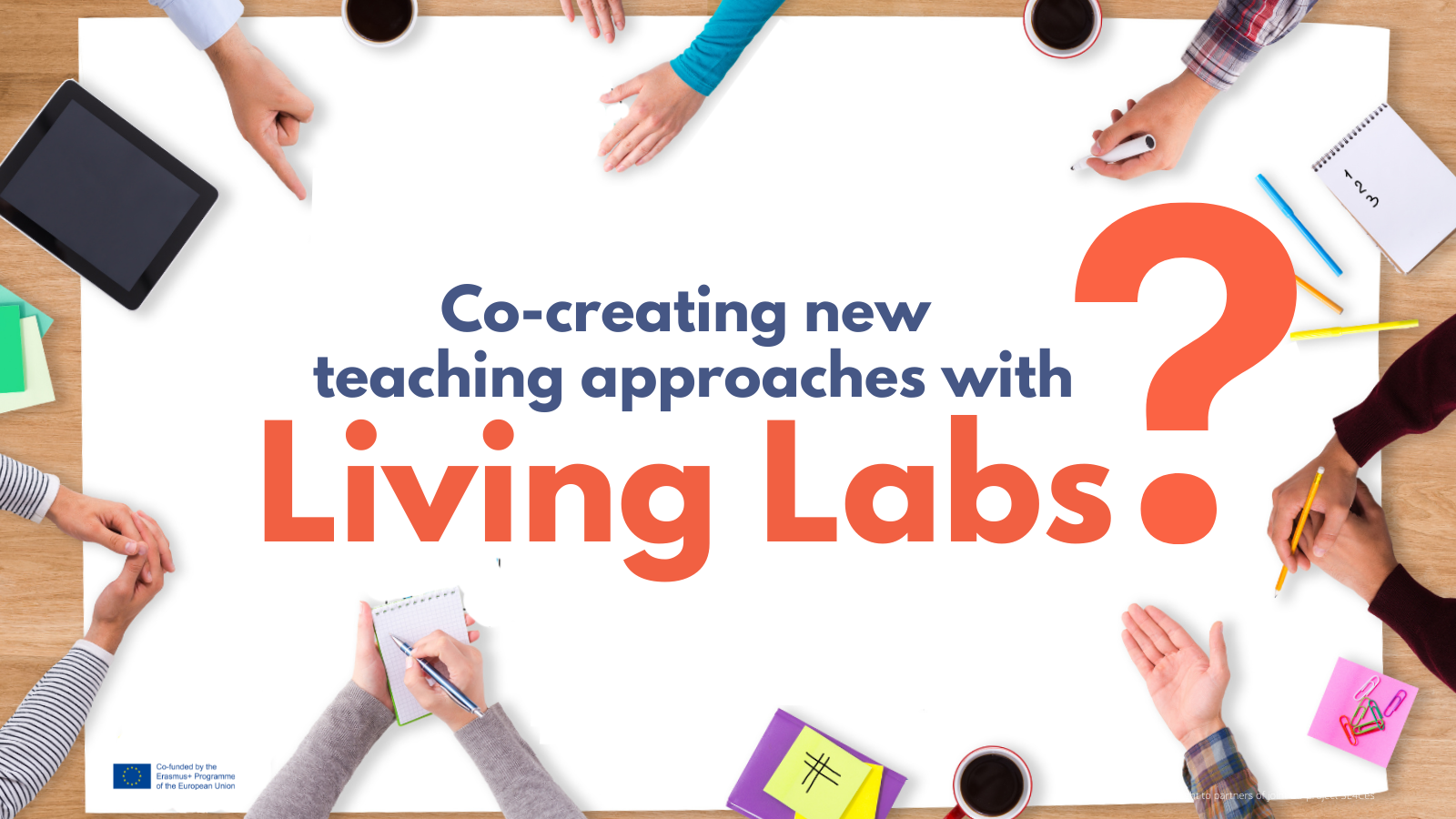SE4Ces aims to develop a new Joint international master’s programme about the social economy through a co-creation process that follows the Living Lab approach. But what are Living Labs and how will SE4Ces organise and deploy them?
Living Labs have become a well-known but not well-understood concept to solve complex societal needs. The main reason it is not well understood is that different actors use it in a variety of contexts, forms, and approaches. In literature, Living Labs have been depicted under a few dozen different descriptions. A more general understanding of a Living Lab is known as a ‘space’ either virtual or physical that allows various actors to exchange knowledge and experiences with a purpose to stimulate research and development.
The European Network of Living Labs (ENoLL) defines Living Labs as:
“user-centred, open innovation ecosystems based on systematic user co-creation approach, integrating research and innovation processes in real-life communities and settings. They operate as intermediaries among citizens, research organisations, companies, cities and regions for joint value co-creation, rapid prototyping or validation to scale up innovation and businesses”.
Despite the fact that there are differences in terms of defining, conceptualising and approaching a LL, there has been an agreement on the common purpose of LLs to create new solutions that are evaluated or validated with the support of all relevant stakeholders towards creating innovation.
The role of Living Labs in SE4Ces
The SE4Ces project borrows this concept with a social economy twist: the Social Economy Living Labs (SE Living Labs or SE LLs). They are partnerships operating based on Social Economy principles such as cooperativism, societal engagement, community development, etc. During their pilot implementation phase (WP5) in four pilot countries (UK, EL, ES, IT), the SE Living Labs will function as the main form of interaction for knowledge co-creation, collaboration building, idea generation, and collaborative teaching towards the end-product: the co-development of the master’s programme.
In the SE4Ces Living Labs we follow the conceptualisation proposed by the European Network of Living Labs as seen in the image below.
:
Preferably a Living Lab space is organised in a real-life local setting that allows natural discussions and real user engagement in a trusted environment. In pandemic times the SE4Ces partners will be limited by local government rules, forcing the Labs to be held in hybrid or online formats.
Moreover, the co-creation process will gather input from different stakeholders: higher education institutions (HEIs), social economy organisations and with the active contributions of students and community organisations (CSOs, citizens, social movements, etc.) through the introduction of collaborative teaching and learning methodologies. The theoretical pillars are well-grounded in the social economy philosophy and principles of “co-creation of knowledge”, “co-teaching approaches, service-learning method). This means that participatory formats such as collaborative learning, community building, brainstorming, workshops will be included in the different Living Labs to allow for productive exchanges.
Ultimately, the SE4Ces Living Labs aim to:
- facilitate the exchange of knowledge/experiences and social interventions between HEIs, SE organisations and community stakeholders
- design and test innovative and socially driven methods of collaborative teaching
- facilitate the co-creation of academic knowledge and educational materials on SE
- promote stronger cooperation formats between Higher Education Institutions and on the ground actors of the social economy.
- promote the integration of local and regional societal issues into the curricula and the application of problem-based learning opportunities (through service learning) focused on community problems.
At the same time, the Labs will empower participants with a wide range of transversal and practical skills, thus tackling skills mismatches and developing in-demand skills by offering real-work experiences within and for the community through the application of service learning. An initial aspiration is to make these labs operate as open and flexible laboratories for generating social innovation and enabling all participants in the field of social economy to integrate real-life societal issues into curricula.
Next steps for the Living Labs in SE4Ces?
The design and development of SE Living Labs will be displayed in a framework report. The Social Economy Living Labs framework will explain, among other, how the three building blocks of the SE Living Labs (co-creation phase of educational materials, co-teaching approaches and application of Service-Learning methodology in SE study programmes) will be implemented in all four pilot areas under a common planning designed by the consortium. In addition, it will define the necessary set of skills on which all lab participants should focus and provide a detailed definition of the main elements of the framework. Terms like “co-creation of knowledge”, “co-teaching”, “socially driven teaching approaches and application of service-learning” will be further operationalised. Additionally, the team will provide explanations about the co-creation methodology for their pilot implementation.The organisation and implementation of the SE Living Labs are enriched by primary data that were collected through dedicated surveys which were developed and launched in all four pilot countries during autumn 2021 and were addressed to three main target groups (SE organisations, students and educators). Indicatively, the surveys’ findings offer useful insights directly from the targeted stakeholders’ perspectives regarding their role in co-creation of educational material, co-teaching approaches and their preference in the practical ways such approaches can be implemented, necessary skills and obstacles as enabling and disabling factors in a co-creation process and the potentials that a Service-learning methodology can offer in SE study programmes.
The framework report is currently being drafted and expected in early 2022.
UPDATE:
The first digital pilot Living Lab was organised on 10 February 2022! With a warm-up session organised by project lead Effie Amanatidou. More info about that here.



